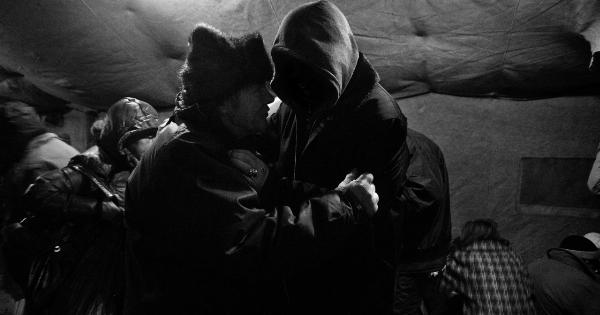Bipolar disorder, formerly known as manic depression, is a mental health condition that affects millions of individuals worldwide.
It is characterized by extreme mood swings, from periods of intense happiness and elevated energy levels to episodes of depression and despair. These mood fluctuations can be severe and disruptive, impacting various aspects of a person’s life, including work, relationships, and overall well-being.
Recognizing the symptoms of bipolar disorder is crucial in managing the condition and seeking appropriate treatment. In this article, we will explore ten common symptoms that individuals with bipolar disorder may experience.
1. Manic Episodes
Manic episodes are one of the hallmarks of bipolar disorder. During these periods, individuals may feel an intense surge of energy, euphoria, and restlessness.
They may engage in impulsive behaviors, such as excessive spending, reckless driving, or risky sexual activities. While feeling on top of the world during a manic episode can initially seem enjoyable, it often leads to adverse consequences.
2. Depressive Episodes
Just as mania characterizes the highs of bipolar disorder, depressive episodes embody the lows. Individuals experiencing a depressive episode may feel overwhelming sadness, hopelessness, and a lack of interest in activities they would typically enjoy.
They may struggle with sleeping difficulties, loss of appetite or overeating, and thoughts of self-harm or suicide. Depressive episodes can be debilitating and can interfere with daily functioning.
3. Drastic Mood Swings
Bipolar disorder is characterized by drastic shifts in mood, with individuals experiencing periods of mania and depression alternating irregularly.
These mood swings can happen within a matter of days or weeks and can significantly disrupt a person’s emotional stability. The sudden changes in mood can strain relationships and make it challenging to maintain social and occupational functioning.
4. Increased Energy and Hyperactivity
During manic episodes, individuals may exhibit hyperactivity and increased energy levels. They may feel the need to constantly be on the move, engaging in multiple tasks simultaneously.
This restless behavior may lead to a decrease in the need for sleep and can cause physical and mental exhaustion during the subsequent depressive phase.
5. Decreased Need for Sleep
One of the characteristic symptoms of bipolar disorder is a decreased need for sleep during manic episodes. Individuals may feel energized and find it difficult to fall asleep, even when exhausted.
This lack of sleep can exacerbate the manic symptoms and contribute to an overall decline in well-being.
6. Irritability or Agitation
When experiencing a manic or depressive episode, individuals with bipolar disorder may feel irritable or agitated. Small annoyances that would typically be easily overlooked may become major sources of frustration.
This irritability can lead to conflicts with friends, family, or colleagues and make it challenging to maintain healthy relationships.
7. Racing Thoughts
Bipolar disorder can also cause racing thoughts where an individual’s mind races uncontrollably, making it nearly impossible to concentrate or focus on a single task.
This symptom can cause extreme distractibility and impair daily functioning, making it difficult to complete work or engage in meaningful activities.
8. Impaired Judgment and Impulsivity
During manic episodes, individuals with bipolar disorder may exhibit impaired judgment and make impulsive decisions without considering the consequences.
This can manifest as reckless spending, engaging in dangerous behaviors, or taking unnecessary risks. These impulsive actions often lead to financial or personal hardships that can further exacerbate the challenging nature of the condition.
9. Social Withdrawal
While some individuals with bipolar disorder exhibit hyperactive or energized behavior during manic episodes, others may tend to withdraw from social interactions.
Feelings of self-doubt, shame, or anxiety may cause individuals to isolate themselves from loved ones and struggle to maintain relationships. Social withdrawal during depressive episodes can further worsen the feelings of loneliness and despair.
10. Suicidal Thoughts
Individuals with bipolar disorder, particularly during severe depressive episodes, may experience suicidal thoughts or engage in self-harming behaviors.
It is crucial to take any mention or signs of self-harm seriously and seek immediate professional help. Suicidal thoughts should never be ignored, and support should be provided promptly.
Conclusion
Bipolar disorder is a complex and challenging mental health condition with significant impacts on the lives of those affected.
By familiarizing ourselves with the symptoms and seeking appropriate medical care, we can support individuals with bipolar disorder to manage their condition effectively. If you or someone you know is experiencing any symptoms mentioned in this article, it is crucial to reach out to a healthcare professional for an accurate diagnosis and appropriate treatment.
Remember, help is available, and with the right support, individuals with bipolar disorder can lead fulfilling and productive lives.






























